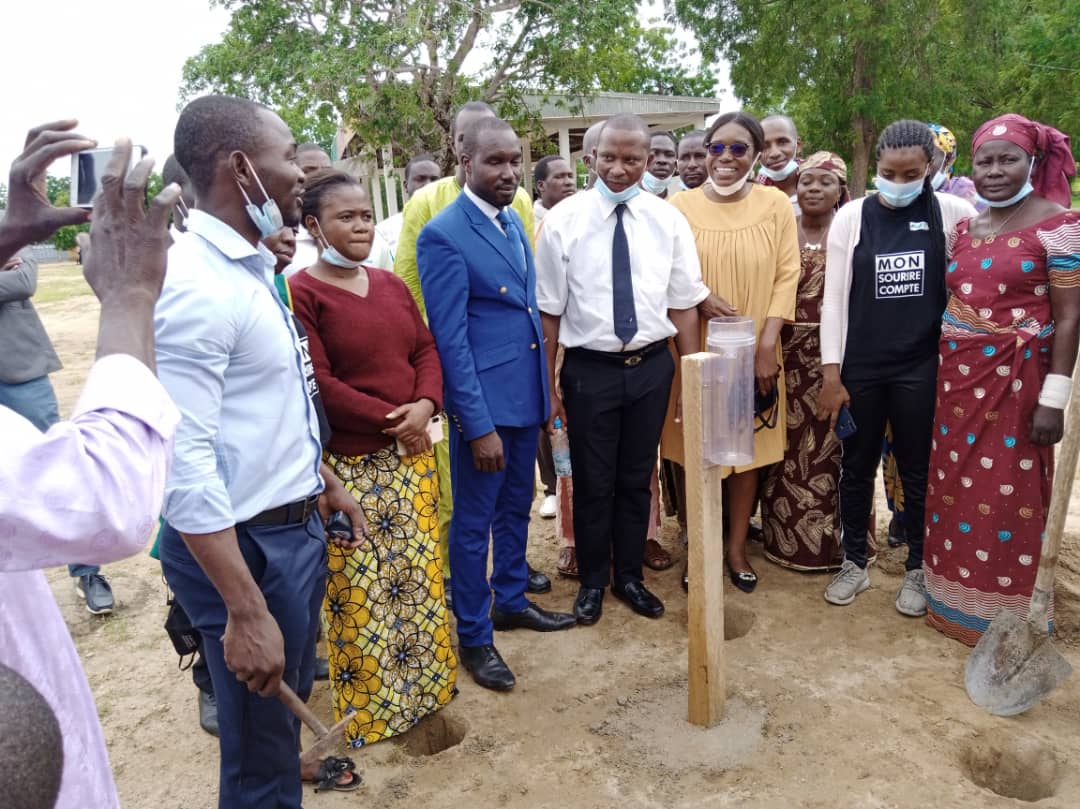The seminar which was supported by the local government council of Meri, follows a recommendation from the multi-stakeholder dialogue organized by the Department of National Meteorology (MINT) and GWP-Cameroon in November 2020 for GWP-Cmr to support MINT in conducting pilot initiatives within communities in the agro-ecological zones to improve in situ collection of agro-meteorological information from the farms and for the department to work with the local government of these areas to develop measures to improve accessibility to climate information to reduce vulnerability to the impacts of climate change. Capitalising its ongoing work with different stakeholders in the region, GWP-Cameroon brought together local government representatives, community members and female leaders for this training.
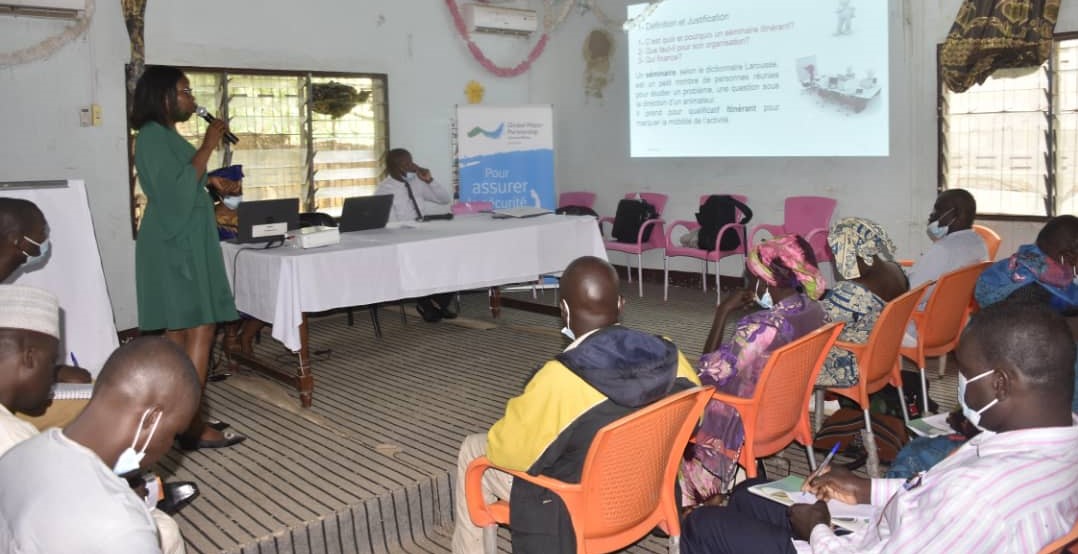
The overall objective of the seminar was to popularize meteorological information often provided on a regular basis by the Department of Meteorology but seldom used by local farmers due to its complex nature leading to poor planning of agricultural activities - greatly affecting harvest. To ensure that the weather information from the department concerning these zones reflect the reality on the field, the training sought to show farmers the importance of using rain gauges to monitor rainfall. This will facilitate their decision-making and improve agro-sylvo-pastoral yields thus reducing their vulnerability to weather and climate variations.
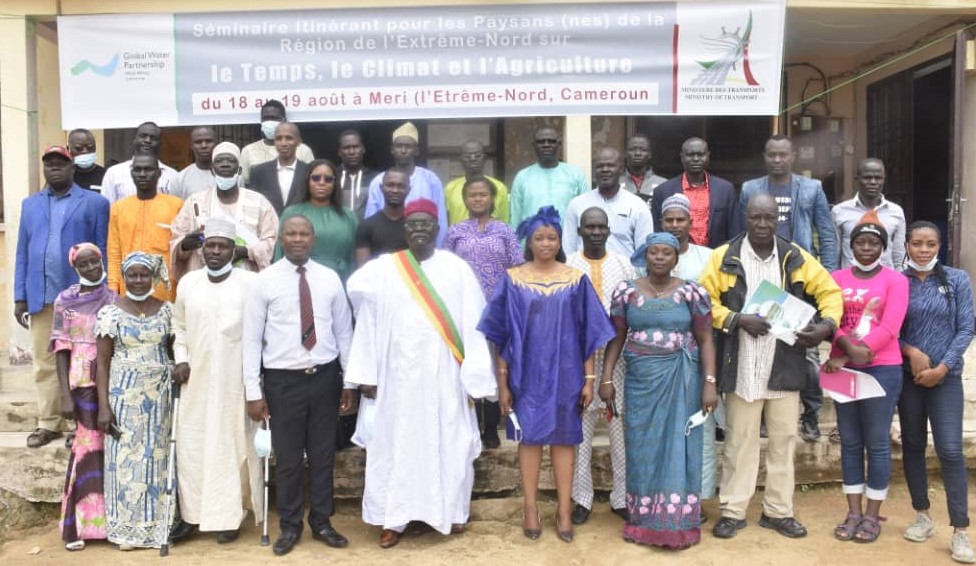
The seminar was attended by forty-one participants from the Meri local council, MINT (regional delegation included), local farmers, Common Initiative groups, Ministry of Fisheries and Animal Industries (MINEPIA), the Ministry of Agriculture and Rural Development (MINADER). It equipped participants on the of use of agro-meteorological tools and techniques, the local agricultural calendar, production systems appropriate to the climatic constraints of crops, and techniques for disseminating and collecting weather information notably monitoring rainfall through rain gauges.
Speaking at the seminar, the deputy director of the National Department of Meteorology, Mr. Gervais Yontchang Didier said, “We realize that the information available on rainfall and meteorological data at the central level does not reach the farmers at the grassroots level. To better address this, MINT in collaboration with WMO and GWP-Cameroon, will use this training to provide participants with the tools that will enable them to know when to sow, which varieties of seeds to use, when to apply pesticides, among others”.
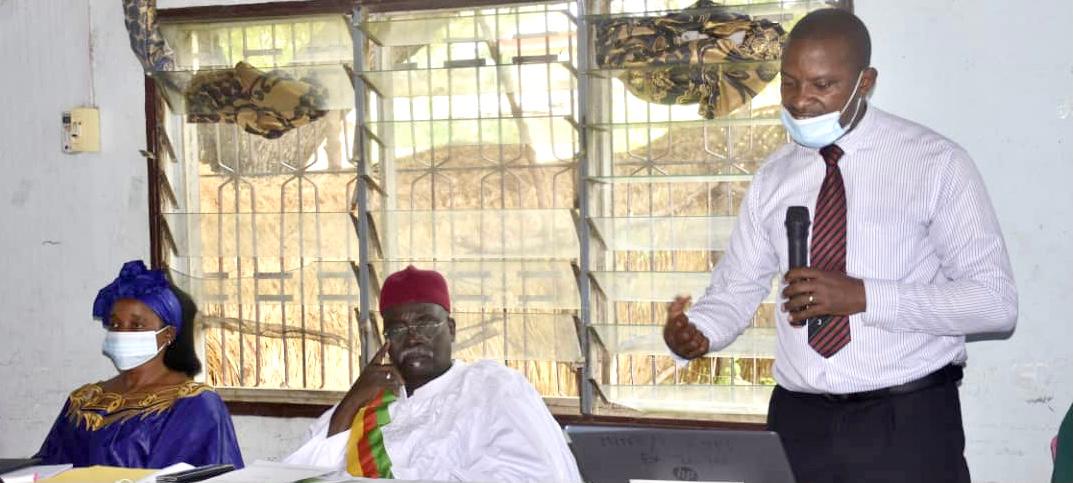
With women the most vulnerable to these climate variations, GWP-Cmr’s support to the project is within the context of the Water, Climate, Development – Gender (WACDEP-G) program. On her part, the WACDEP-G program officer, Murielle Elouga said, “this initiative will enable communities, and particularly women vulnerable to climatic hazards, to become aware of the importance of aligning their agricultural activities with climate information provided by the ministry and them through the rainfall monitoring”
A need which was expressed by farmers during a June preparatory mission by the Department of National Meteorology to the locality of Meri. One maize farmer expressed, “We prepare the farms, we plough, we plant, and we wait but the rain doesn’t come. Last year we had to re-plant maize…the first time led to no harvest because the quantity of rain wasn’t enough to grow the crops”.
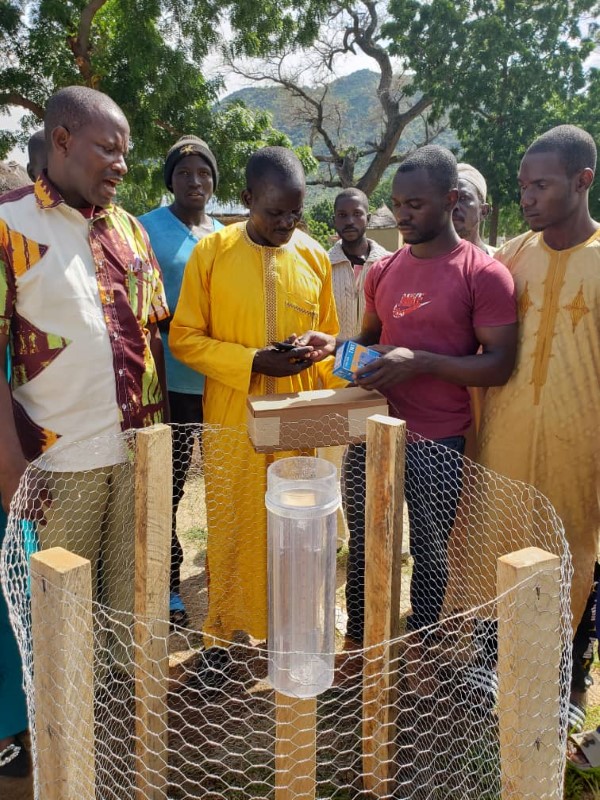
Day two of the seminar saw the installation of 10 rain gauges in 10 districts of the Meri community to the delight of the local farmers with high expectations for the future planting seasons. The information collected from the rain gauges by the focal points of the rain gauge stations will be sent back to the department for an apt weather information of the zone.
A female leader, Veronique expressed that “this training has given us much information on weather, climate and agriculture and we will use it to ensure that our farmers come out of poverty and contribute to the overall development of the community”.
Background
Weather and climate are the main risk factors impacting on agricultural production and natural resource management in Cameroon, particularly in the north. Agricultural production in this region with extreme weather and climate conditions, such as severe droughts, floods, or extreme temperatures are recurrent causing considerable deficits in crop yields – threatening food security. For these reasons, Cameroon is committed to promoting policies and plans for farmers' adaptation to climate change, as part of the 2035 vision and through the implementation of its National Adaptation Plan for Climate Change (NAP).
